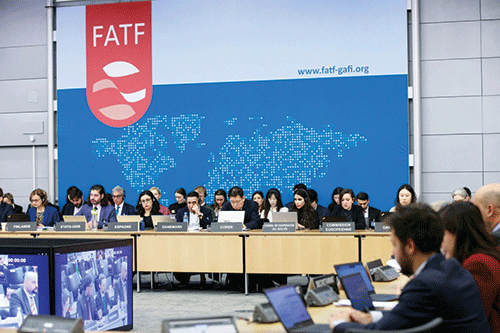The International Monetary Fund (IMF) stands ready to back Namibia’s anti-money laundering efforts, and to combat illicit activities such as the financing of terrorism. This, the Fund identified as some of the areas of improvement and safeguards assessments made at the end of 2023.
“The effective implementation of the newly-passed laws remains the current hurdle before the Financial Action Task Force (FATF) decision on greylisting. On remaining safeguards assessment measures, we stand ready to support the authorities in legal reforms to further strengthen the autonomy of the central bank,” reads a statement released by the IMF last month.
The FATF is the global money laundering and terrorist financing watchdog. The inter-governmental body sets international standards which aim to prevent illegal activities and the harm they cause to society. As a policymaking body, the FATF works to generate the necessary political will to bring about national legislative and regulatory reforms in these areas.
The IMF assessment followed the bilateral discussions on economic developments and policies in Namibia, which were concluded with high-level officials in October 2023. Greylisting basically means a country is under increased monitoring due to a lack of policies and procedures to deal with anti-money laundering (AML), combatting the financing of terrorism (CFT), and a counter-proliferation financing (CPF) framework.
Bank of Namibia governor Johannes !Gawaxab recently cautioned that greylisting would adversely impact trade, lead to an increased risk premium, and heightened borrowing costs. Coupled with more anticipated cross-border transaction costs, this would severely limit a country’s ability to effectively conduct business.
He noted that it would also be detrimental to Namibia’s capacity to attract foreign direct investment (FDI).
Namibia is currently at various stages of implementing legislation to strengthen anti-money laundering and terrorist financing efforts. It is expected that next month, February 2024, the FATF will make further determinations on Namibia’s greylisted status.
-mndjavera@nepc.com.na



